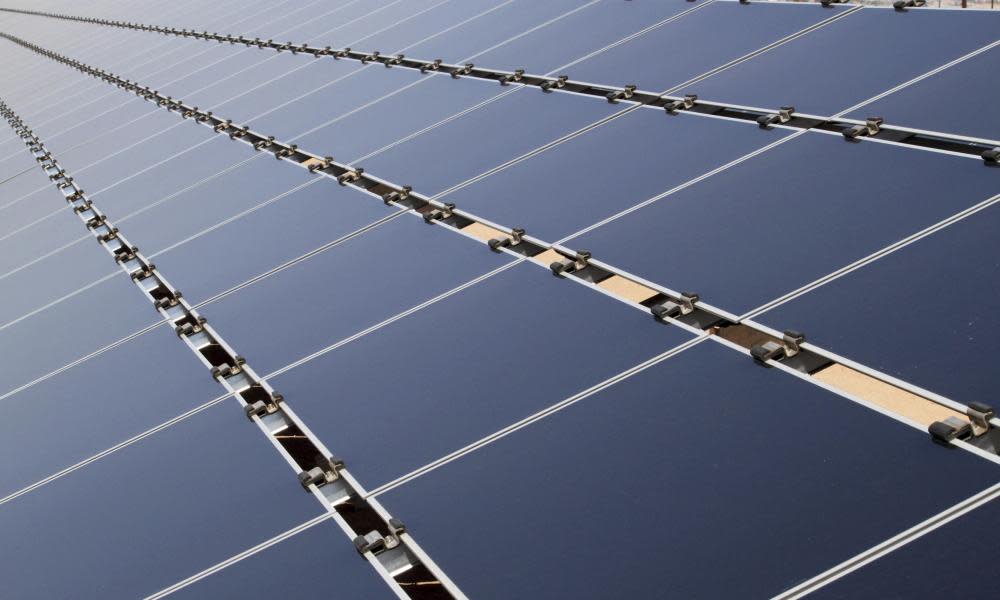Donald Trump's tariffs on panels will cost US solar industry thousands of jobs

Donald Trump’s decision to impose a tariff on imported solar panels will cost the US solar industry about 23,000 jobs this year and risks slowing the growth of clean energy that would help address climate change, renewable energy advocates warned.
Trump has imposed a 30% tariff on foreign-made solar cells and modules, with the White House expressing alarm at a huge rise in imported components “spurred on by artificially low-priced solar cells and modules from China”.
But solar installers warned that the tariff, which will reduce to 15% within four years, will cost US jobs rather than protect them.
The Solar Energy Industries Association said 23,000 jobs would be lost in 2018, pointing out that most solar manufacturing in the US revolves around making parts for cheaper imported panels, rather than the cells and panels themselves.
The installation of panels accounts for around 130,000 further jobs.
“It boggles my mind that this president – any president, really – would voluntarily choose to damage one of the fastest-growing segments of our economy,” said Tony Clifford, chief development officer of Standard Solar, which finances and installs panels.
Bill Vietas, president of RBI Solar, which makes mounting systems for panels, added: “The US solar manufacturing sector has been growing as our industry has surged over the past five years.
“Government tariffs will increase the cost of solar and depress demand, which will reduce the orders we’re getting and cost manufacturing workers their jobs.”
Trump has long complained that China has an unfair advantage over the US on trade and his stance has been backed by two companies that claim cheap imports have hit American solar manufacturing.
Last May, Suniva, a bankrupt US module manufacturer with a Chinese majority owner, lodged a complaint with the International Trade Commission that stated it had suffered “significant harm” due to imported cells and modules.
The US arm of SolarWorld joined the petition in order to seek a tariff.
Juergen Stein, chief executive of SolarWorld Americas, said he “appreciates the hard work of President Trump”.
“We are still reviewing these remedies and are hopeful they will be enough to address the import surge and to rebuild solar manufacturing in the United States,” he said.
Environmental groups have decried the move as the latest attempt by Trump to stymie the shift to clean energy and wean the US off the fossil fuels that cause dangerous climate change.
Michael Bloomberg, the billionaire former mayor of New York, tweeted that the tariffs will “raise Americans’ electric bills and hurt our environment”.
But while the tariffs may provide an unwelcome hurdle for the US solar industry, the cost of the technology and installation has dropped so precipitously in recent years that the industry could emerge relatively unscathed.
The cost of installing solar panels on rooftops has fallen by more than 70% since 2010, according to the Solar Energy Industries Association. Solar now accounts for around 1.4% of US utility-scale electricity generation, up from virtually nothing in 2007.

 Yahoo News
Yahoo News 
